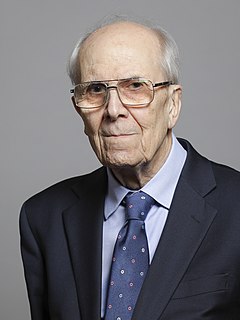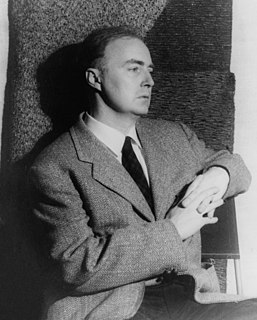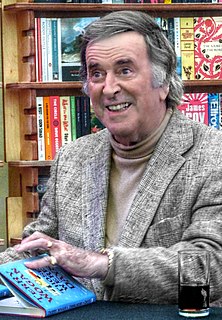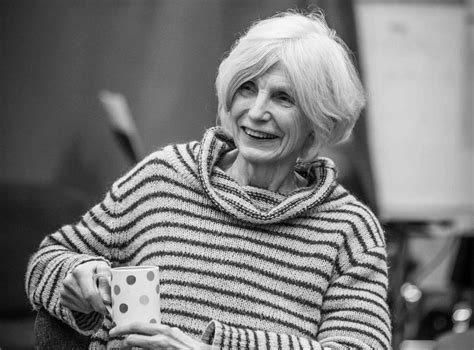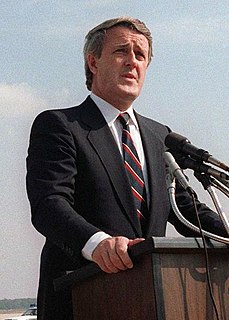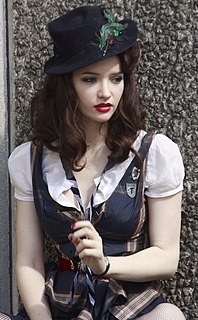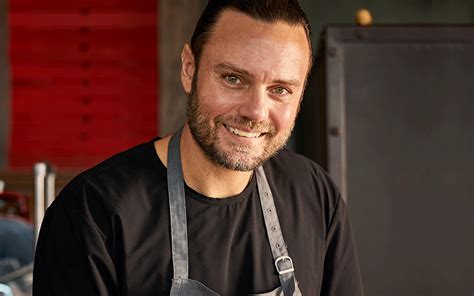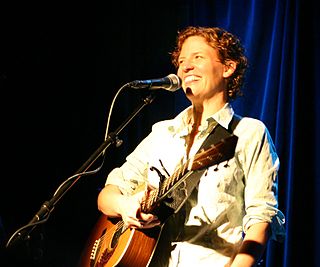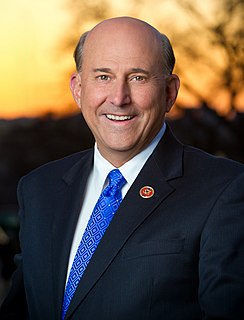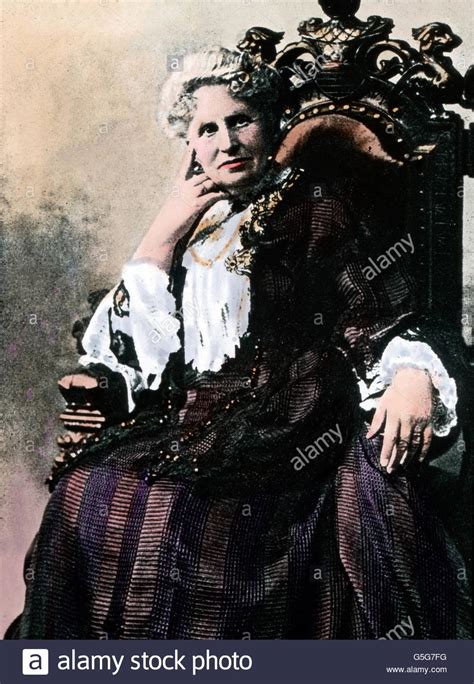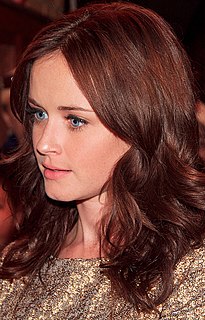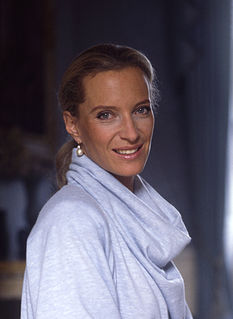Top 394 Margaret Quotes & Sayings - Page 6
Explore popular Margaret quotes.
Last updated on September 19, 2024.
I was obsessed with the scientific instruments people were building and all the weird experiments they were doing. I did actually wind up working in some of that, but there were whole sections I'd written about these instruments that ultimately had to be abandoned when I realized that the book really was about Margaret Cavendish. I couldn't justify using all of them.
The first of the Trainspotting crew to die. Out of the five of them like, Begbie, Renton, Spud, Sick Boy and [Margaret] Thatcher. Who'd have thunk she'd have been the first to go? She was the invisible author of the book, really. She created the conditions and the hubris whereby that whole culture flourished.
And she [Margaret Thatcher] also had a sort of a way, like a railroad train, of going, taking a breath and starting quite quietly and making a point in a way that you don't really know that this point is going to be made through several examples, and there will be not be a break in the speaking voice at any point.
Depended on the soldier. To relax, most of them put on headphones or played video games. Later in the war some of the younger officers began to read a lot of anthropology because they realized that the basic problem was that they were trying to fight a war in a culture they didn't understand. They might have read someone like Margaret Mead.
But Margaret was at an age when any apprehension, not absolutely based on a knowledge of facts, is easily banished for a time by a bright sunny day, or some happy outward circumstance. And when the brilliant fourteen fine days of October came on, her cares were all blown away as lightly as thistledown, and she thought of nothing but the glories of the forest.
It's this amazing combination to play, really, of somebody who's actually very fragile and hasn't really grown up properly yet - at least in a healthy environment - and has suffered immense loss with her dad - like that line where she says, [in the words of her father [King George VI], "Yes, 'Elizabeth is my pride but Margaret's my joy." She holds onto it!
I think they (Thatcher protesters) ought to be grateful for the fact that the people who hold our (pro-Thatcher) views, and who are not mindless bigots, won't allow their behaviour to provoke us into words or behaviour which would could be seen as a breach of the peace. Hopefully, those of us who admire Margaret Thatcher are too well-mannered to fall for the bait.
I suppose I was about 20, and a crowd of us had been to a village hop and came back to make midnight cups of coffee. I was in the kitchen helping to dish up and having a fierce argument with one of the boys in the crowd when someone else interrupted to say: 'Of course Margaret, you will go into politics won't you?' I stopped dead. Suddenly it was crystalised for me. I knew.
In fact, soon after that [South African sanctions], I was going on an official visit to the UK and Margaret Thatcher instructed every minister to clear the decks of any outstanding matters between us - Australia and the Brits. And she went out of her way to make sure that that was as successful a visit as it possibly could be.
What's depressing, in a way, thinking of Margaret Thatcher legacy - and she was no doubt great in many ways - but the arts in the UK are still having to justify that it is a profitable business rather than a frivolity. It's one of the greatest UK exports, one of the reasons people come to the UK, and yet we're still having to justify our existence in terms of funding.
A part of what makes myths live is their multiplicity, the way different voices retell them in every generation. Homer survives because his poetry was outstanding, yes, but also because he's been passed down by so many by luminaries like Vergil and Ovid, Shakespeare, James Joyce and Margaret Atwood, but also by countless others. I wanted to do my part for these tremendous stories.
I'm just saying we can all work on our manners. We can say please and thank you. We can be punctual. We can just be nicer to one another. It's something we have in our power to do. It reminds me of that Margaret Mead quote: "Never doubt that a small group of thoughtful, committed citizens can change the world. Indeed, it's the only thing that ever has.
Just as the England football manager starts with bells and flags and balloons and ends up reviled, so do prime ministers. Tony Blair - is there anyone more despised now? Gordon Brown - all right, nobody voted for him but, you know... just think of any of them. Margaret Thatcher. John Major. Steve McLaren. Fabio Capello.
The writers who inspire me most are all women: Enid Blyton, Agatha Christie, Margaret Mitchell and Emily and Charlotte Bronte. As for contemporary novels, one of my favourites is 'Everyone Brave is Forgiven' by Chris Cleave. It's the sort of book to read if you've fallen out of love with reading - it reminds you just how brilliant novels can be.
When Margaret Thatcher was leader, she and Michael Heseltine were hardly soulmates, but she would not have allowed personal rivalry to take the heat off the Labour Party, whose own deep internal divisions are buried in other news now, nor would she have countenanced any attempt to have a show trial.
But Margaret went less abroad, among machinery and men; saw less of power in its public effect, and, as it happened, she was thrown with one or two of those who, in all measures affecting masses of people, must be acute sufferers for the good of many. The question always is, has everything been done to make the sufferings of these exceptions as small as possible?
Alexandros of Antioch took a block of marble and chiseled away from it everything that was not his masterpiece, the Venus de Milo. If you will chisel away one fault from your character every day, you may discover - a) that you're actually a statue of Margaret Thatcher. b) that you're still just a block of marble. c) that there are pigeon droppings on your shoes. d) that you, too, are a hidden masterpiece.
Margaret Thatcher has one great advantage - she is a daughter of the people and looks trim, as the daughter of the people desire to be. Shirley Williams has such an advantage over her because she's a member of the upper-middle class and can achieve the kitchen-sink revolutionary look that one cannot get unless one has been to a really good school.
Roseanne was a huge groundbreaking comedian. Margaret Cho. Ellen DeGeneres, and then on 'Saturday Night Live,' the era of Tina Fey and Amy Poehler sort of helped to bring in an awareness of a new generation of women comedians, often women who were feminist in their comedy, who were unafraid - and this came from the genre of show that was emerging.
The look she gave me reminded me of when is was seven and I'd proudly informed out housekeeper that I'd donated half my clothing to a charity drive at school. It had seemed perfectly sensible to me-I didn't need so much stuff-but she'd stared at me like Margaret was now, with a mix of horror and disbelief.
I want to convey that there is hope? that we're a world that is in turmoil but there is hope. I'm always amazed at how much love is in people's hearts even when they disagree about things. I think it's important for people to come together in music. It reminds me of the Margaret Mead saying, 'Never believe that a few caring people can't change the world. ' I think that's really true.
When I started to be published I thought about Margaret Bourke-White and the whole journalistic approach to things. I believed I was supposed to catch life going by me - that I wasn't to alter it or tamper with it - that I was just to watch what was going on and report it as best I could. This shoot with John was different. I got involved, and I realized that you can't help but be touched by what goes on in front of you. I no longer believe that there is such a thing as objectivity.
IT is reported of Margaret Fuller that she said she accepted the universe. "Gad, she'd better!" retorted Carlyle. Carlyle himself did not accept the universe in a very whole-hearted manner. Looking up at the midnight stars, he exclaimed: "A sad spectacle! If they be inhabited, what a scope for misery and folly; if they be not inhabited, what a waste of space!"
Margaret Mead was both a student of civilization and an exemplar of it. To a public of millions, she brought the central insight of cultural anthropology: that varying cultural patterns express an underlying human unity. She mastered her discipline, but she also transcended it. Intrepid, independent, plain spoken, fearless, she remains a model for the young and a teacher from whom all may learn.
Margaret Miles offers a stunning treatment of human experience, coaxing humans to leave dualisms behind and embrace our intelligent bodies. In a foundational text, she draws on the arts, philosophy and theology, and her experience as a hospice volunteer to explore concrete alternatives to privileging the rational mind. Her erudition, wisdom, and graceful writing are compelling proof of the intelligent body.
'The Handmaid's Tale' takes place in the near future, a dystopian future, and is based on the book by Margaret Atwood. It takes place in what was formerly part of the United States at a period of time when society has been taken over by a totalitarian theocracy. It's about the women who live in subjugation.
I was frequently embarrassed by the way Margaret conducted herself within the European Community. Her tactics were counter-productive and damaging to the UK's interests. On most issues her approach was foolish. Her style and tone of voice came to irk the others so much that they instinctively sank their differences and joined forces against her.
For all his pain, he longed to see the author of it. Although he hated Margaret at times, when he thought of that gentle familiar attitude and all the attendant circumstances, he had a restless desire to renew her picture in his mind - a longing for the very atmosphere she breathed. He was in the Charybdis of passion, and must perforce circle and circle ever nearer round the fatal centre.
My first audition I ended up getting the film was Margaret's Museum with Helena Bonham-Carter. And I went off for about two months on my own even to Scotland and hit Brittan and Nova Scotia and was surrounded by very creative people, nomadic people. And I just really loved the lifestyle and the zest for life and they kind of confused me ever since. So I've been chasing that dragon.
Margaret Cavendish was one of the people who came up in the course. That was when I started thinking about her as a character for a book, but my idea was for a totally different book. It had all these characters in it; Samuel Pepys was one of the main characters. He famously wrote these extensive diaries through the period that are really funny and sort of saucy, actually.
When I started knocking on Highland doors in May 1983, two things struck me more than any other. First was the sheer depth of hostility towards the Tories in general. Second was the particular hostility towards Margaret Thatcher and her local ministerial spear-carrier, energy minister and incumbent MP of 13 years' standing, Hamish Gray.
Some of the biographies [of princess Margaret] were really sensationalist, News of the World sorts, but they were great because they also gave first and secondhand accounts of her at home. The butlers come forward and give little moments, some of which you discard and some which ring somehow true and you use.
I mean, Princess Margaret had me officially informed by the master of the household that she wouldn't speak to me until I changed my religion. That was not personal. We'd only met for five minutes. That was historical. She never spoke to me in 25 years. We were always very polite to one another, but we didn't speak.
I am dramatic,” said Will. “If I had not been a Shadowhunter, I would have had a future on the stage. I have no doubt I would have been greeted with acclaim.” Excerpt From: Clare, Cassandra. “Clockwork Princess.” Margaret K. McElderry Books, 2013-03-19T00:00:00+00:00. iBooks. This material may be protected by copyright.
Public speaking is done in the public tongue, the national or tribal language; and the language of our tribe is the men's language. Of course women learn it. We're not dumb. If you can tell Margaret Thatcher from Ronald Reagan, or Indira Gandhi from General Somoza, by anything they say, tell me how. This is a man's world, so it talks a man's language.
The analysis in the era of Ronald Reagan and Margaret Thatcher was that government was interfering with the efficiency of the economy through protectionism, government subsidies, and government ownership. Once the government "got out of the way," private markets would allocate resources efficiently and generate robust growth. Development would simply come.
Every argument that Margaret Thatcher ever made internationally didn't have a great deal to do with her contempt for Communism - she never really got into that. What she talked about was giving freedom to tens of millions of people in Central and Eastern Europe. She was an inspirational leader when it came to discussing her belief in freedom. More visceral and moral.









